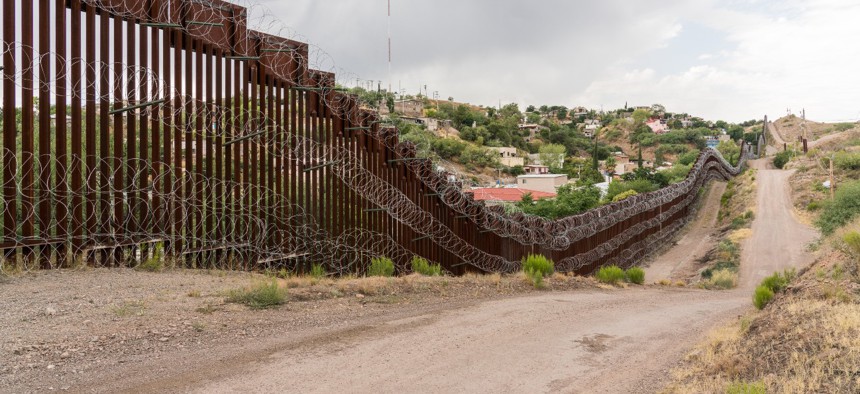
Yuko Smith photography / Getty Images
VA Downplays Its Role at the Border Amid Backlash, But Defends Potential Deployments
Republican lawmakers say tapping VA resources to confront any crisis would harm veterans.
The Veterans Affairs Department has no immediate plans to send personnel to the U.S.-Mexico border in anticipation of an uptick of migrants arriving there, though it is defending its potential role amid backlash from Republican lawmakers.
While Homeland Security Department Secretary Alejandro Mayorkas told Congress last week his staff was in talks with VA about deploying health care workers to the border ahead of the potential end to a pandemic policy that immediately rejected and turned away most undocumented immigrants, VA Secretary Denis McDonough clarified that his agency is not in discussions with DHS. McDonough was asked about the potential deployments at a budget hearing as Republicans in Congress criticized the Biden administration for potentially pursuing the strategy, saying it would unfairly rob veterans of needed resources.
While pushing back on there being any discussion to date on such assignments, McDonough stressed that any “fourth mission” deployments—how VA labels providing care to the public—would not require any sacrifices from veterans.
“In no case does the 4th mission come at the expense of veteran access to care,” the secretary said, adding that he would consult with Congress on any potential new assignments in that category.
VA has throughout the COVID-19 pandemic sent staff and resources to communities that were overwhelmed and had limited access to hospital beds. McDonough noted VA has deployed staff to the border on six occasions to help vaccinate Customs and Border Protection and Immigration and Customs Enforcement personnel and on two occasions to set up clinics for veterans in Mexico.
“I think that is an admirable thing to do squarely in the national interest,” McDonough said.
Republicans in both the House and Senate have in recent days introduced legislation that would prohibit VA from spending any money to assist in upcoming emergencies at the border. DHS has projected a significant increase in immigrants arriving at the southern border when Title 42 expires, which is set to occur on May 23. Encounters at the border have remained high despite Title 42 allowing the government to reject and turn away migrants seeking asylum, but the administration is expecting the news of the end of the policy will lead to a renewed interest in individuals fleeing violence, unrest and poverty seeking to enter the United States.
Rep. Steve Womack, R-Ark., who introduced the 2022 Veterans First Act with 30 colleagues last week, said VA deployments would be “insanity.”
“Our heroes shouldn’t carry the burden of President Biden’s failings,” Womack said. “We won’t stand for having the care of those who have proudly worn America’s uniform redirected to deal with the consequences of the White House’s disastrous immigration policies.”
Republicans and a handful of Democrats have called on Biden to delay the rollback of Title 42 authority, which is issued by the Centers for Disease Control and Prevention.
“Moving resources away from serving the needs of our veterans to supporting a foreseeable and avoidable crisis at our southern border is unacceptable,” said Sen. John Boozman, R-Ark., who introduced similar legislation in the Senate.
CBP has already moved 600 personnel to the southwest border ahead of Title 42's expiration, DHS unveiled last week as part of its six-pillar plan to tackle the anticipated uptick in immigration. DHS has also brought on hundreds of new contractors to engage in processing work and allow an additional 500 agents to return to the field. The department previously said it would ask for personnel assistance from other federal agencies across government.
The exact timing of the policy’s termination could still be in flux, as a federal judge last week signaled he would soon issue an order preventing the Biden administration from taking steps to wind it down. Several states had sued seeking to keep the policy in place, saying its expiration would create chaos at the border.







